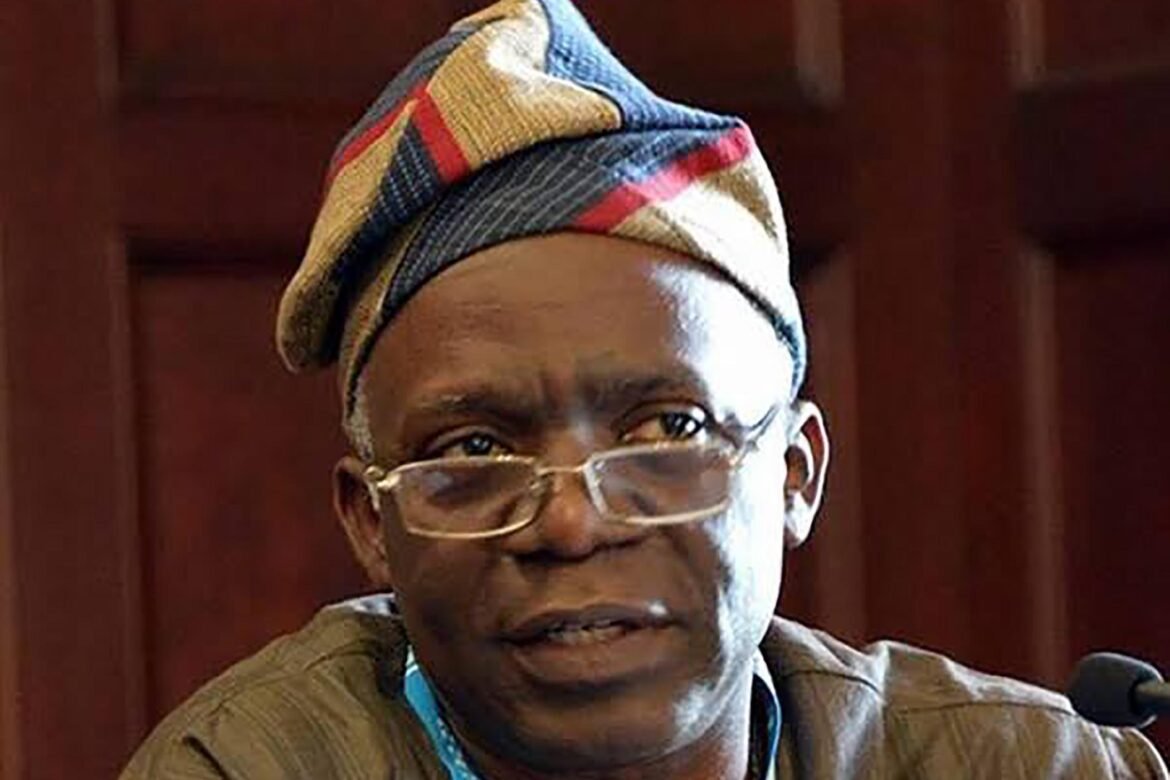Human rights lawyer and activist, Femi Falana, has raised the alarm on the growing by clamp down on dissenters and opponents of the president, governors and other office holders by the Nigeria Police Force.
Falana in a statement on Sunday Falana expressed concern over what he described as the proclivity of the Nigeria Police Force to engage in the unwarranted harassment and intimidation of the perceived opponents of President Muhammadu Buhari and the ruling party.
He said the police had in a number of states arrested, detained and charged some journalists with terrorism before the Federal High Court for criticising the President and Ministers, State Governors and Commissioners.
He said, “Sometime last month, the Katsina State Police Command arrested a 75-year-old man, Lawal Abdullahi for ‘insulting’ President Muhammadu Buhari and Governor Aminu Bello Masari of Katsina State.”
The septuaganarian, Falana said, was hurriedly charged before a Magistrate Court which convicted him and made him to pay a fine of N70,000 on him. “To prevent him from being sent to jail we had to pay the fine.”
He also narrated that the police had a fortnight ago arrested Nastura Ashir Sharif, leader of the Coalition of Northern Groups, CNG, for organising a peaceful protest against insecurity in Katsina State.
He said “The protest was alleged to have embarrassed the President. Consequently, Mr. Sharf was brought to Abuja where he was interrogated by the Police even though he did not commit any criminal offence known to law.
“However, the police had to release the youth leader from illegal custody when it was reported that President Buhari had scolded the nation’s Service Chiefs for the worsening state of insecurity in the country. Other peaceful protests by aggrieved citizens in other states of the Federation have been violently disrupted by the police without any legal justification.”
Falana said the actions of the Police Authorities constituted a flagrant infringement of the fundamental rights of Nigerian citizens to freedom of association as well as freedom to assemble peacefully and protest against the policies or programmes of any government or authority.
Citing a court judgement to defend his position, Falana said, In Inspector General of Police v All Nigeria Peoples Party 2008 12 WRN 65 the Court of Appeal held that “The right to demonstrate and the right to protest on matters of public concern are rights which are in the public interest and that which individuals must possess, and which they should exercise without impediment as long as no wrongful act is done. If as speculated by law enforcement agents that breach of the peace would occur our Criminal Code has made adequate provisions for sanctions against breakdown of law and order so that the requirement of permit as a conditionality to holding meetings and rallies can no longer be justified in a democratic society.”
He said, “It is high time the attention of all police authorities was drawn to the case of Atiku Abubakar v Attorney General of the Federation (2007) LPELR-SC.7/2007 where the Supreme had this to say: “The primary duty; indeed the most fundamental duty of the Nigeria Police Force is the maintenance and securing of public safety and public order within the country. In the performance of its duty, the Nigeria Police Force must manifestly demonstrate impartiality; it must not lean to one side against the other; it must be apolitical. It must not take part in any disputation, which has political coloration. These qualities are sine qua non to the enhancement of public respectability to it.”
In view of the definitive pronouncement of the Apex Court on the mandatory constitutional duty of the members of the Nigeria Police Force to maintain neutrality and impartiality in political matters, the Inspector-General of Police, Falana said, should henceforth restrain the police from getting involved in political disputations among the various factions of the members of the political class.
At the same time, he said, the fundamental rights of the Nigerian people to demonstrate against official policies that are considered inimical to the interests of the nation must be respected by the Nigeria Police Force and other security agencies in the country.








